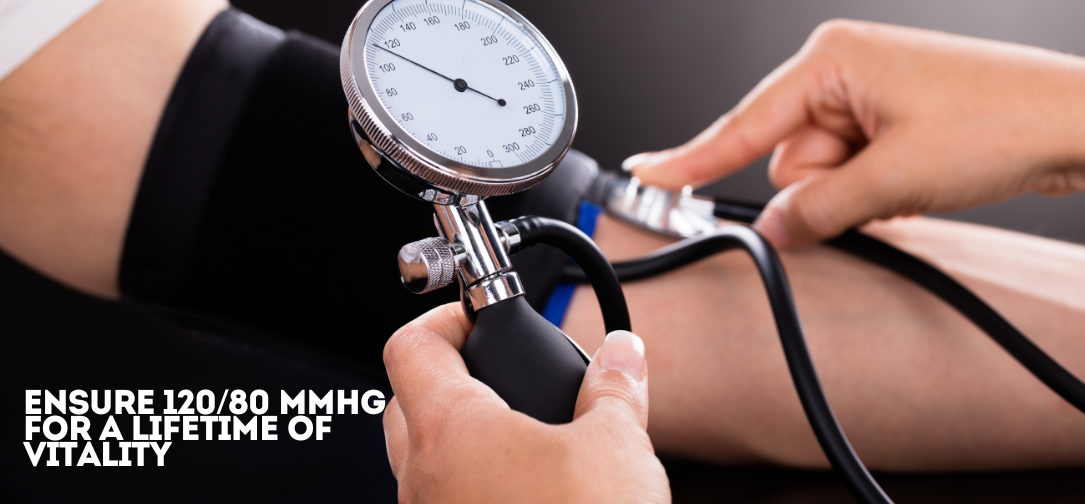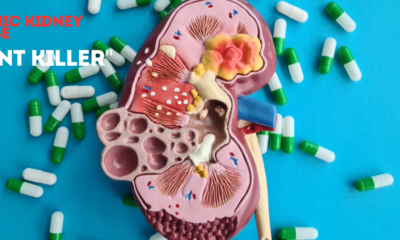Fitness & Wellness
Blood Pressure Management: Strategies for a Healthy Heart

Blood pressure management is a cornerstone of cardiovascular health, influencing an individual’s overall well-being and life expectancy. The condition often goes unnoticed due to its silent nature, but its impact can be profound, leading to severe complications such as heart disease, stroke, and kidney failure if left unchecked. As a result, managing blood pressure is essential to ensuring a healthy heart.
Understanding Blood Pressure: The Basics
Blood pressure is the force exerted by circulating blood on the walls of the arteries as the heart pumps it around the body. It is measured in millimeters of mercury (mmHg) and is expressed as two values: systolic and diastolic pressure. The systolic pressure is the higher number and represents the force when the heart contracts to pump blood. The diastolic pressure is the lower number, indicating the pressure in the arteries when the heart rests between beats. A normal blood pressure reading typically falls within the range of 120/80 mmHg.
High blood pressure, also known as hypertension, occurs when these numbers consistently exceed the normal range. Hypertension is diagnosed when blood pressure readings are 130/80 mmHg or higher. Conversely, low blood pressure, or hypotension, is defined by readings below 90/60 mmHg. While both conditions warrant medical attention, hypertension is far more common and poses a greater threat to heart health.
The Significance of Blood Pressure in Cardiovascular Health
The heart is a vital organ responsible for maintaining blood circulation and delivering oxygen and nutrients to tissues. Proper management of blood pressure is crucial for maintaining cardiovascular health because high or low blood pressure places strain on the heart, arteries, and other vital organs. Elevated blood pressure, for instance, forces the heart to work harder, leading to an enlargement of the heart muscle. Over time, this can lead to heart failure, arrhythmias, and sudden cardiac events.
Additionally, high blood pressure causes damage to the arteries, making them less elastic and leading to the formation of plaques, a condition known as atherosclerosis. This can cause blockages, increase the risk of blood clots, and lead to life-threatening complications such as heart attacks or strokes.
On the other hand, low blood pressure can deprive the body of sufficient oxygen and nutrient-rich blood, particularly in vital organs like the brain, kidneys, and liver. This may result in dizziness, fainting, and, in severe cases, shock a medical emergency.
Risk Factors for High Blood Pressure
Understanding the risk factors for hypertension is a critical step in effective blood pressure management. Hypertension can result from a combination of genetic, lifestyle, and environmental factors. The most common risk factors include:
Age: As people age, the arteries naturally stiffen, increasing the risk of high blood pressure. This process accelerates after the age of 50.
Genetics: A family history of hypertension increases the likelihood of developing the condition. Certain gene variants have been linked to an increased risk of high blood pressure.
Lifestyle Choices: Unhealthy lifestyle habits play a significant role in developing high blood pressure. These include a diet high in salt, a sedentary lifestyle, excessive alcohol consumption, and smoking.
Obesity: Being overweight or obese forces the heart to pump more blood, increasing the pressure exerted on arterial walls. Obesity is strongly linked to both primary hypertension and secondary hypertension due to conditions such as sleep apnea.
Chronic Conditions: Conditions like diabetes, high cholesterol, and kidney disease can increase the risk of high blood pressure. Insulin resistance and inflammation in diabetes contribute to arterial damage and hypertension.
Stress: Chronic stress can elevate blood pressure by triggering the release of hormones like adrenaline and cortisol, which increase heart rate and constrict blood vessels.
Gender: Men are more likely to develop hypertension in their younger years, while postmenopausal women have a higher risk as hormonal changes make arteries less flexible.
Race and Ethnicity: Certain ethnic groups, such as African Americans, are more susceptible to hypertension and its complications, potentially due to a combination of genetic and environmental factors.
While these risk factors can make hypertension seem inevitable for some, it’s important to note that lifestyle changes and proper medical intervention can significantly lower the risk and help manage blood pressure effectively.
Strategies for Managing Blood Pressure
Blood pressure management requires a multifaceted approach that combines lifestyle modifications, dietary changes, stress management, regular monitoring, and, in some cases, medication. Below are some key strategies for keeping blood pressure within a healthy range and ensuring a healthy heart:
Adopting a Heart-Healthy Diet
Diet plays an integral role in blood pressure management. One of the most effective dietary approaches is the DASH (Dietary Approaches to Stop Hypertension) diet, which has been extensively studied for its ability to lower blood pressure. The DASH diet emphasizes the consumption of fruits, vegetables, whole grains, lean proteins, and low-fat dairy products, while limiting foods high in saturated fats, cholesterol, and sodium.
Key dietary components of the DASH plan include:
- Potassium: This mineral helps balance the negative effects of sodium on blood pressure. Foods rich in potassium include bananas, oranges, potatoes, spinach, and avocados.
- Magnesium: Magnesium aids in the relaxation of blood vessels and can help prevent high blood pressure. Sources include leafy greens, nuts, seeds, and whole grains.
- Calcium: Adequate calcium intake helps regulate blood pressure. Dairy products like milk, yogurt, and cheese are good sources.
- Fiber: A high-fiber diet has been linked to lower blood pressure. Whole grains, legumes, fruits, and vegetables provide ample fiber, aiding in heart health.
Reducing Sodium Intake
Sodium is one of the primary contributors to high blood pressure. Excess sodium causes the body to retain water, which increases the volume of blood, putting extra pressure on blood vessel walls. The American Heart Association recommends limiting sodium intake to no more than 2,300 mg per day, with an ideal target of 1,500 mg for most adults. This can be achieved by:
- Reading food labels to choose low-sodium or sodium-free products.
- Cooking meals from scratch to control salt levels.
- Using herbs and spices as alternatives to salt for flavoring food.
- Avoiding processed foods, canned soups, and fast foods, which are typically high in sodium.
Maintaining a Healthy Weight
Weight management is essential for controlling blood pressure. Excess weight forces the heart to work harder, leading to increased blood pressure. Even a small amount of weight loss 5% to 10% of body weight can have a significant impact on blood pressure.
Incorporating regular physical activity is a critical part of weight management. Aerobic exercises such as walking, cycling, swimming, and jogging can improve heart health and reduce systolic blood pressure by 5 to 10 mmHg. The American Heart Association recommends at least 150 minutes of moderate-intensity exercise or 75 minutes of vigorous exercise each week. Resistance training and flexibility exercises, such as yoga, also help reduce stress and improve cardiovascular health.
Limiting Alcohol Consumption
Excessive alcohol intake is a well-known contributor to hypertension. While moderate alcohol consumption defined as one drink per day for women and two for men may have some protective cardiovascular effects, drinking more than this can raise blood pressure levels. It is advisable to limit alcohol intake to moderate levels and avoid binge drinking to maintain healthy blood pressure.
Quitting Smoking
Smoking is a major risk factor for cardiovascular disease, as it damages the walls of blood vessels, leading to atherosclerosis and high blood pressure. The nicotine in cigarettes raises blood pressure by constricting blood vessels and stimulating the release of adrenaline. Quitting smoking can significantly improve heart health, lower blood pressure, and reduce the risk of heart attacks, strokes, and other complications.
Managing Stress
Chronic stress has been linked to long-term increases in blood pressure. Stress triggers the release of hormones that temporarily increase heart rate and blood pressure. Over time, repeated exposure to stress hormones can damage blood vessels and contribute to hypertension.
Effective stress management techniques include:
Mindfulness meditation: This practice involves focusing on the present moment and can reduce stress-related blood pressure spikes.
Deep breathing exercises: Controlled breathing techniques help slow heart rate and lower blood pressure.
Progressive muscle relaxation: This involves tensing and then relaxing each muscle group in the body, helping to relieve physical tension and mental stress.
Physical activity: Exercise is a proven way to reduce stress by releasing endorphins, which elevate mood and promote relaxation.
Time management: Prioritizing tasks and setting realistic goals can help reduce the sense of overwhelm that contributes to stress.
Monitoring Blood Pressure Regularly
Regular monitoring of blood pressure is essential for managing hypertension, particularly for individuals at risk of developing high blood pressure or those already diagnosed with the condition. Self-monitoring at home with a reliable blood pressure cuff can provide valuable insights into how lifestyle changes, diet, and medication are affecting blood pressure levels.
It’s important to track readings over time and share them with healthcare providers during checkups. Consistent tracking helps detect patterns, fluctuations, or potential issues that may need medical attention.
Medication and Medical Management
In some cases, lifestyle changes alone may not be enough to manage blood pressure effectively. For individuals with moderate to severe hypertension, medications may be necessary. There are several classes of antihypertensive drugs, each working in different ways to lower blood pressure:
Diuretics: These medications
help the body eliminate excess sodium and water, reducing blood volume and blood pressure.
- ACE Inhibitors: Angiotensin-converting enzyme (ACE) inhibitors relax blood vessels by blocking the production of a hormone that constricts them.
- Calcium Channel Blockers: These medications prevent calcium from entering the heart and blood vessel walls, helping to lower blood pressure.
- Beta-Blockers: Beta-blockers reduce heart rate and the force of contraction, lowering blood pressure.
- Angiotensin II Receptor Blockers (ARBs): These medications block the effects of angiotensin II, a hormone that narrows blood vessels.
It’s important for individuals on antihypertensive medications to adhere to their prescribed treatment plan and attend regular follow-up appointments to monitor effectiveness and make adjustments if necessary.
Special Considerations: Blood Pressure Management for Specific Groups
While blood pressure management strategies are broadly applicable, certain groups may require special considerations.
- Older Adults: As the risk of hypertension increases with age, older adults should prioritize a heart-healthy diet, regular physical activity, and regular blood pressure monitoring. Blood pressure targets may vary depending on individual health status and comorbidities.
- Pregnant Women: Hypertension during pregnancy, known as preeclampsia, poses significant risks for both the mother and the fetus. Expectant mothers should be closely monitored, and blood pressure management may involve medications that are safe during pregnancy.
- Individuals with Diabetes: Diabetes increases the risk of hypertension and cardiovascular complications. Blood pressure management in individuals with diabetes may require stricter targets, typically below 130/80 mmHg, and the use of specific medications that protect kidney function.
Blood pressure management is vital for maintaining a healthy heart and preventing serious complications such as heart disease, stroke, and kidney failure. A combination of lifestyle changes, dietary adjustments, stress management, and, when necessary, medication can effectively control blood pressure and promote long-term cardiovascular health. Understanding the risk factors and adopting a proactive approach can empower individuals to take charge of their health and prevent hypertension from becoming a silent but dangerous threat to their well-being.
By fostering healthy habits and seeking medical guidance when needed, individuals can protect their hearts, improve their quality of life, and enjoy the benefits of optimal cardiovascular health.









































